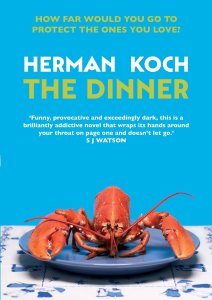Fiction – Kindle edition; Penguin; 385 pages; 2014. Review copy courtesy of the publisher.
It will come as no surprise to long-time followers of this blog that Colm Tóibín’s latest novel, Nora Webster, would be right up my street.
I enjoyed his 1992 novel The Heather Blazing, when I read it more than 20 years ago, as well as more recent forays into his work, specifically The Blackwater Lightship and Brooklyn (both reviewed on this blog), and I have been saving up some of his others for “comfort reads” — because, to be frank, that’s how I view his writing: it’s often unbearably sad and melancholic but I find his lyrical style, its form and rhythm, quite comforting. And yet, when I read Nora Webster, I didn’t find it particularly comforting at all… I found it, well, let me be frank once again, kind of lacking. Let me explain.
A woman’s grief
The book, which is set in Ireland’s County Wexford (Tóibín’s home town of Enniscorthy to be precise) in the late 1960s and 1970s, is focused on one woman — the Nora Webster of the title — who has recently been widowed. Her husband, a school teacher who played an active role in local politics and was regarded as a pillar of the community, has died of some never-explained-to-the-reader illness and she is left to bring up four children alone: two of them — young adult daughters — no longer live at home, but there are two young boys under the age of 11 whom she treats in a distant but not unkind way.
Early on in the novel there are two pivotal moments: the first is the realisation that Nora is broke and must return to work, something she hasn’t done since becoming a mother; and the second is her inability to see the harm she might have caused her two boys when she placed them in the care of an aunt while her husband was ill in hospital — during that time she never once visited them or let them see their father.
Now, bereft and grieving, she realises she must get on with life without her husband by her side. Her return to part-time work is fraught with difficulties — mainly in the form of a bitchy boss, whose antics are so over-the-top as to be cartoonish — and she’s constantly worried about her eldest son who seems to have developed a stutter, but there is hope and redemption too, mainly in the form of music, when Nora rediscovers her ability to sing. (On more than one occasion I was reminded of last year’s Giller short-listed novel Tell by Frances Itani, in which music and song serves to sooth the loneliness of a woman grappling with the return of her husband crippled during the Great War.)
Character-driven narrative
There’s not much of a plot in this book — it basically follows Nora getting on with her new life as a widow and raising her two now-fatherless sons as best she can over the course of several years. It’s largely character driven. Typically, the characters — Nora, her children, her siblings and their families, her work colleagues, new friends and the local nuns — are beautifully drawn, and Tóibín builds up a realistic portrait of a close-knit community at a time when life (and gossip) was so much simpler than it is now.
Indeed, Toibin is at his best when he focuses on the minutiae of Nora’s daily life — the housework, her job, the care of her sons, her singing practice — and the sense of community that surrounds, and occasionally smothers, her: this is a woman who wants to grieve alone but Irish village life, where everyone knows everyone else’s business, refuses to let her do so.
It’s a slow, gentle read, and a moving portrait of one woman’s grief, but I kept wondering whether the narrative was going to build to any particular climax (it doesn’t). I felt as if the story was plodding along, going nowhere and I occasionally grew bored — I hate to say it, but even Tóibín’s lovely lyrical voice wasn’t enough to sustain me on the journey.
That said, I do need to issue two caveats. First, I read Nora Webster immediately in the wake of Mary Costello’s extraordinarily powerful debut novel, Academy Street, which meant it paled by comparison. And second, I did not realise the book was based on Tóibín’s own mother until I watched the BBC documentary Colm Toibin: His Mother’s Son just days after finishing it. I think having this knowledge in mind while reading the book would have certainly made me more sympathetic to the novel’s aims: to explore why Nora Webster — flawed and fragile — behaved in the ways she did during her husband’s illness and afterwards…







